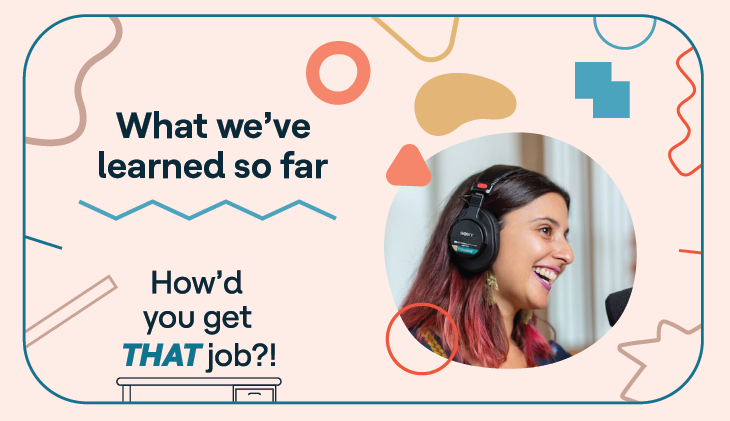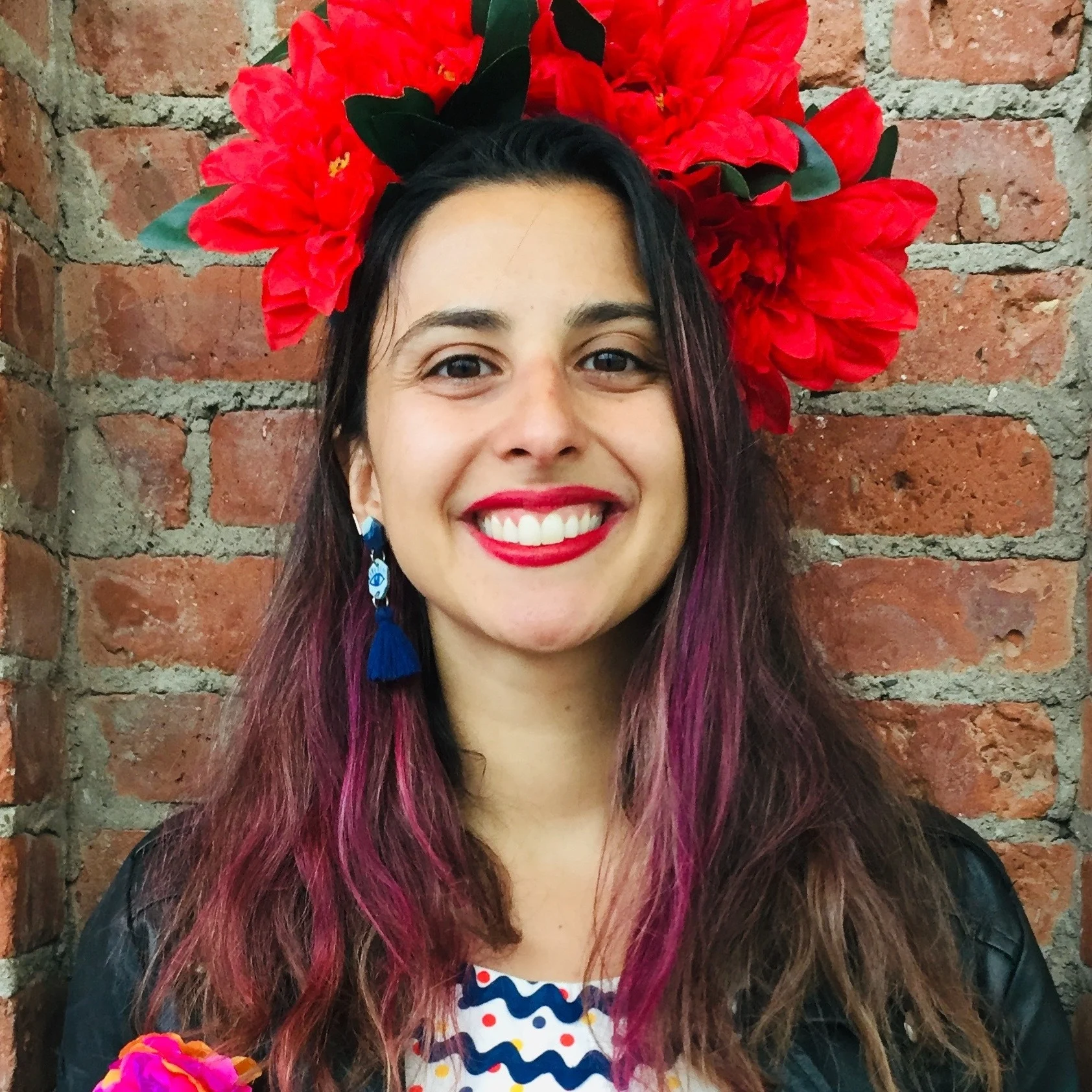Stay in the know
All our latest podcasts delivered right to your inbox.
Trying to figure out the right job can be challenging — and feel pretty lonely — especially when you have learning and thinking differences. But luckily, there are ways to smooth your career path, and people to get advice from.
In this bonus episode of How’d You Get THAT Job?!, host Eleni Matheou shares what we’ve heard throughout the show so far, and things we’ve learned. Tune in to explore common threads, like trying new things and being open to failure. Listen now to learn how to stack your skills into the perfect combo for both you and your employer.
Related resources
Work advocacy 101: Asking your boss for what you need to thrive
40+ examples of career examples of people who learn and think differently
Episode transcript
Eleni: From the Understood Podcast Network, this is "How'd You Get THAT Job?!," a podcast that explores the unique and often unexpected career paths of people with learning and thinking differences. My name is Eleni Matheou and I'm a user researcher here at Understood. That means I spent a lot of time thinking about how we find jobs we love that reflect how we learn and who we are. I'll be your host.
Today's episode is going to be a little different. Over the past year, I've been talking to people about how they got jobs that work for them. Believe it or not, a lot of lessons my guest shared can be applied to you no matter what type of career you're pursuing. What Scottie learned as a wastewater engineer might help you figure out how to find an environment that works for your brain. Or what Lindsay learned launching her wedding photography business might help you see what type of entrepreneur you can be.
So this episode, we're going to look back at the dozens of conversations I've had and pull out some of the most helpful lessons we've learned so far that could help you figure out how to find the job that's right for you — or how to make your current job a better fit.
Something I know is that everyone has strengths they can bring to the workplace. And figuring out your unique strengths and how they can be applied to the workplace is a good way to help you figure out what career might be a good fit. This summer I talked to Brendan Mahan, an ADHD coach. He called this idea a skill stack. He found the perfect job after combining what he learned as an educator and counselor with his passion for stories.
Brendan: My skill stack is I have a lot of skills around kids specifically, which is why I'm good at the parenting stuff. I have a lot of skills around counseling and communicating and teaching. And I understand story in a way that not everybody does. So that skill stack combines to let me be a really good podcast host, because I can hear the stories and find out where I want to go and what's the through line. And when my clients are talking to me, I'm able to do some story stuff, right? Like, what's the story you're telling yourself? And are you the hero in the story? Are you the villain? Like, what does that mean? What do we want to do with that? How do we want to play with that? And I'm good at communicating and teaching, and that helps with the OK, here's the ADHD stuff. Let's explain and explore what that is.
Eleni: So this idea of figuring out what skills you have in disparate areas of your life and bringing them together in your job is something I've heard again and again, including in this episode we did with my guest, Bobby Benjamin. In high school, he started to become interested in neurology and how people think because of a teacher who assigned him a book on the brain.
Bobby: That got me really interested in psychology. I get diagnosed over the summer with ADHD, and a lot of things start to make sense for me. And that's how I got into Eye to Eye, doing mentorship with kids who have learning differences and ADHD. So out of college, I had no idea what I wanted to do. But I did know that I really enjoyed mentoring and working with kids with learning differences.
Eleni: Bobby turned his interest in psychology and his talent for connecting with young people into a job directing clinical services at a foster care agency. His unique combination of experiences, passions, and strengths led him to a job that few others are suited for.
Bobby: Not a lot of people want to work with kids who've been through some of the most difficult experiences and sometimes come at you with a lot of anger that is displaced from their circumstances — from what they've had to deal with. And I like at least the potential for being a reparative experience, being somebody that could be safe in maybe a world that doesn't feel very safe.
Eleni: So take a moment. Ask yourself: What skills, personality traits, passions, and interests do you have? What are creative ways you can bring them together in a job?
Sometimes a way to figure out those skills is to look at your interests and hobbies. Take my guest, Paul Starr. He always loved comics, particularly Japanese anime. Did you expect to make a career out of this passion that you had?
Paul: No, not even a little bit. And my mom loves to tease me about this. Because in one of my favorite comics, which was called "Oh My Goddess," in issue 2 of that comic, there was an essay in the back from the translator about the process of translation. And I had never been interested in learning a foreign language before. I didn't know anything about the work of translation. And all I knew was that I loved this manga and anime stuff and I wanted to be involved with it somehow. And I read this essay, and for some reason that was what stuck in my head as, oh, maybe I could do that.
Eleni: So today Paul translates manga and anime full time. Paul identified a possible career path related to his passion early on. But some of my guests tried to pursue other things before realizing that they were fighting against how their brain worked. Once they leaned more heavily into the areas they love, their brain was happy again. That came up in our interview with music producer Alex Bilowitz. He was studying business in college and it wasn't clicking. He has ADHD, and he was struggling to get his work done.
Alex: The end of freshman year, I had to go in front of the dean of studies and they were basically like, "We don't know what to do with you because your grades...." I had a 1.7 GPA. They were like, "Your grades are so bad, but you haven't — like, there's no infractions. You didn't like miss...." I don't think I missed one class. I mean, literally, not one. I was there. They're like, but you haven't gotten any trouble. And like the RA, the person in your dorm, says that you don't, like, make noise or there's no smells of weed coming out of your room. You're just, like, not doing anything. But your music professors think that you're this, like, great talent, and they — and they like you.
And, you know, I had a band and we would play and the whole college would come out and they were like, "So we don't really know what to do." I was like, "I don't know what to tell you." So they, they kind of came up with this formula with a professor who had really taken a liking to me that I would take a semester off. I went back to the city. I had like a very sort of like manual labor kind of job. I was basically a doorman in a building.
And then I went back to college second semester, sophomore year. The only credits that I had from freshman year that were transferable or applicable were my music ones. And so when I went back to college, I had this loan. And I wanted to graduate on time with my friends. So in practicality, I had to do college in basically two and a half years. And I had said to my parents, I was like, I'm not going to make it as a business major. I'm just not.
Eleni: Alex had always love music, so he turned to that field instead and he got an internship through one of his music professors in a production studio. Today, he's working on mega-hit pop songs like "Butter" for the band BTS.
That education and learning can happen in all sorts of settings, not just college. Take my guest, Whitney Valentine-Wafer. She doesn't have a college degree, but she's been the chief financial officer at several large organizations.
Whitney: I ended up in my career path because I had been a temp. I had said, "Oh, I need to pay some bills." And I started temping. And it turned out it was something that I'm really great at, and partly just because it was a new, interesting job every other week. I had been temping as a staff accountant level, and when I had been working there, the CFO for the whole organization had come up to me one day and said, "Hey, I have an assistant controller role, and I think you would be perfect at it." And so that job was really interesting to me. I had the opportunity to work for the president and he took the time to sit down with me and say, "I know you haven't done this before, but let's talk about what I think about when I'm doing this process." And it was a little bit like getting to learn on the job as opposed to taking classes.
Eleni: It can take a while to find the right fit. I actually really like it when guests share stories of failure — and how that failure helped them realize what does and does not work for them. Whitney's time at that particular company did not end well. But it provided her with the clarity that she needed to figure out what was next for her.
Whitney: It was a really interesting role and really made me feel excited about what I was doing. And then the person who had hired me left and there were a lot of changes. And so I transitioned into a slightly different role at that same organization, and it was awful. It was absolutely one of the worst jobs I've ever had, and it was really just a lot of kind of data entry. And the more miserable I would get, the less I would be able to motivate myself to do it.
So not only was this job boring and monotonous, but I was falling behind because I couldn't motivate myself to do the work. And so I ultimately got let go. And it sort of forced me to say, "OK, what wasn't working about that job?" And I was able to really say, "OK, I just don't want to do data entry. That was not interesting."
Eleni: It's actually OK if a job is not the right fit. I really love that this podcast normalizes failure. Sometimes it's time to move on. Take the things with you that you love and leave behind what isn't working. Being open to failure means you don't have to be scared of trying new things. You never know what you'll learn about yourself.
Phoebe: I was hoping you were going to give me an opportunity to talk about the time I almost got fired from a job that was really bad for me.
Eleni: I'd love to hear this. That's Phoebe Gavin. She's a career coach and executive director of talent development at Vox Media. That's V-O-X, one of the country's most influential media organizations. Her job is all about mentorship and working with other people — something she realized she loved while working at the fashion brand Diesel. But while working at Diesel, she got the opportunity to work as an assistant in the HR department. It seemed like a great opportunity at the time, but it didn't always jibe with her inattentive ADHD.
Phoebe: When you think about being an assistant, that is a job that requires a high level of recall and a high level of detail. It requires a lot of focus, requires a lot of flexibility. And it also — the constraints and contexts that you are working in are being set by the person that you are assisting, and you have no control over it. So, surprise, surprise, I was terrible at that job. Really bad at it. Sorry, Stuart.
I was a bad assistant. I just forgot things, and I was getting overwhelmed by things, and I was missing little details. It was just, like, so unsuited to the way that my brain works. And I think I did it for six or seven months before, like, he and I had that sit-down conversation where it was like, "Ooh, I'm about to get fired from this job. OK." And so I did quit before I got fired, but that was a really important moment for me to realize that, like, there's certain types of work that my brain is just not well-suited for. There are other brains that are well-suited for that work, and I hope that that is who Stuart's assistant is now.
Eleni: Phoebe was able to take away what she liked about that experience — working with people — and look for jobs that didn't involve as much recall of detail.
Another way to think about failure is to think about the scientific method. With science, you inherently go to the edge of what's known. You have a hypothesis and you experiment. And then you fail and fail, over and over again. And it can be very disheartening if you don't acknowledge that failure is an inherent part of the process. Even if your original hypothesis is wrong, you can still learn something.
This reminds me of my conversation with Jacquelyn Spathies. She's a biomedical researcher, and she has ADHD and dyslexia. Sometimes things don't go as planned in the lab. That's just science.
Jacquelyn: Technically, the main project that I'm working on now started because I wanted to optimize my protocol. And the experiments I was doing to try and optimize it kind of led me down this rabbit hole that then resulted in the project I'm doing now. And I never ended up optimizing that protocol. It never ended up working. But the experiments and data I gained from that gave me an idea, which then resulted in the project I have now. So yeah, a lot of it is just curiosity-driven. Sometimes you don't really know what you're looking for, but it might kind of elucidate itself in time.
Eleni: Sometimes, quote unquote, failing, getting fired, realizing a job isn't the right fit for you means that it's time to move on to a different experiment, if you will. Or it can mean that it's time to ask for extra support or accommodations.
My guest, Raquel Fleetwood, has challenges with math, spoken language, and organization. As a chef and business owner, she's learned that she can rely on her teammates and co-workers to take on some of those more challenging tasks.
Raquel: I also think that it's really important, if you have a learning disability or not, owning a business, to surround yourself with people that balance you out, that can take up for your weakness. So I tell people, I don't need a five-star chef. I just need somebody that's organized that can clean, that doesn't mind doing dishes, all that stuff. I've been able to kind of balance myself out with my staff. And I tell them the organization on my end is shot and I'll have to sit there with a pen and paper because even the phone gets annoying. And I write everything down so that I can see my list of things. Because if I leave it up to my brain, it's going to jumble it all up and mess it up.
Eleni: Raquel is her own boss, and it's true. Many of my guests have found that working for themselves really plays to the strengths of how their brain works. But I've also talked to a lot of guests who report to a manager, and it can be scary to ask a boss for accommodations. But for a lot of people with learning and thinking differences, it pays off. Our guest, Alonna, works in insurance. She has ADHD. She loves working remotely. But she was doing these Zoom trainings and kept getting distracted.
Alonna: I could see everybody in their camera doing different things, you know? I see a girl with this cute "Star Wars" poster in the back, and I'm missing what my boss is saying about how to rate. It was overwhelming. So I ended up, like, crying, like — like I was so, like, in tears because I felt stupid. Like, I'm not I'm not getting it. So my boss knew, like, just, my God, it speaks volumes of her. She could just feel it. So she IMs me on the side and she was like, "Are you — how are you doing with this?" And I was like, "I'm not — I'm not getting this at all. I can't keep up." And she's like, "Don't worry about it. We, you and I will do a private — like a private training.".
And that's what we did and I was able to get it. And so now it's — now because she knows I can't do training that way, whenever she tells something to the group, I just have my own separate session with her so that I can get on the same page.
Eleni: In Alonna's case, her boss noticed her challenges and offered accommodations, and that's great. Part of a good boss' job is making sure that you can do your job to the best of your abilities.
Now I'm going to pause here and note that not every boss is understanding and supportive. If your instincts are telling you that disclosing your differences is not going to go well, that doesn't mean you're doing anything wrong by not sharing that information. That's on your boss for not creating a more inclusive environment. And maybe it's an opportunity to acknowledge that the job environment is just not right for you, and that's OK.
But if you are in a place where you feel comfortable disclosing your differences, a good boss will listen and respond. Let's go back to my conversation with Brendan Mahan, the ADHD coach who we heard from at the beginning of the show.
Brendan: People with ADHD often struggle with self-advocacy. Because we struggle so much in general, there's a lot of guilt and shame that comes with that, right? Like I'm always late and I never do the thing fast enough, and I always lose track of things and forget stuff and these sorts of things. And so as a result, when we're struggling at work or even when we first start a job, it's hard for us to say "these are the things that I need," because we feel like it's our fault. We feel like, well, I'm not worthy of an accommodation. I'm messing up because I stink at life.
And oftentimes we don't advocate for ourselves until we're already in a ton of trouble. We just have to work on getting more comfortable with advocating for ourselves earlier. And some of that is Google "how to advocate for yourself," and get some scripts, so that you can go up to your boss and already have a plan for how you're going to ask what it is that you need. Whatever it is that you need to be able to say, someone somewhere has a blog post about it, or a podcast about it, or there's a meme that's going to help you.
Eleni: Brendan touched on something important here: the shame that can come with a learning and thinking difference. What I loved hearing in all the conversations we've had on this show is how my guests have come to a place of self-confidence and acceptance. They ultimately know that they've gotten to where they are today, not in spite of their difference, but because of it. It's not always easy to find pride in how your brain works. But we hope this show gives you enough powerful role models that take pride in their difference. Let's listen back to Liz Miele. She's a stand-up comedian who has dyslexia, who I talked to this summer.
Liz: There are things that I am innately good at, or things that I've really worked hard to be better at, that have given me the acceptance and attention and validation that I was always searching for as a kid. So if I'm getting what I won and I still haven't changed, who cares? Right? Like, I wanted to be a comedian. I wanted to be funny. I wanted to express myself. I wanted to show the real version of me. And younger me was doing that writing. And I now have written a book and have done stuff that's more, you know, visual, and you see my actual writing. But in the beginning it was like, "Oh, I can kind of hide this part of me that I'm embarrassed about and still succeed." And now I'm just more honest about it, because I misspell stuff all the time. And it's just like if the point of language is to connect and to communicate, and you understand what I'm saying, who cares? It's not a dissertation. Do I want to be better? Absolutely. Would I like to be the best, of course. But I'm living my best life at good enough.
Eleni: The reality is everyone, no matter what they're learning or thinking different, has a unique combination of strengths and challenges. And on this show, I am constantly inspired by how people have built on their strengths and navigated their challenges in some very cool jobs.
You've been listening to "How'd You Get THAT Job?!" from the Understood Podcast Network. This shows for you. So we want to make sure you're getting what you need. Email us at ThatJob@understood.org with your thoughts about the show. Or maybe you'd like to tell us how you got THAT job. I'd love to hear from you.
If you want to learn more about the topics we covered today, check out our show notes for this episode. We include more resources as well as links to anything we mentioned in the episode.
Also, one of our goals at Understood is to help change the workplace so everyone can thrive. Check out what we're up to at u.org/workspace. That's the letter U dot org slash workplace.
Understood.org is a resource dedicated to helping people who learn and think differently discover their potential and thrive. Learn more at Understood.org/mission.
"How'd You Get THAT Job?!" is produced by Grace Tatter. Briana Berry is our production director. Our theme music was written by Justin D. Wright, who also mixes the show. Margie DeSantis provides editorial support. For the Understood Podcast Network, Laura Key is our editorial director, Scott Cocchiere is our creative director, and Seth Melnick is our executive producer. And I'm your host, Eleni Matheou. Thanks again for listening.
Host
Eleni Matheou
leads user research for Understood. She helps Understood to center its work on the lived experiences and voices of people who learn and think differently.
Latest episodes
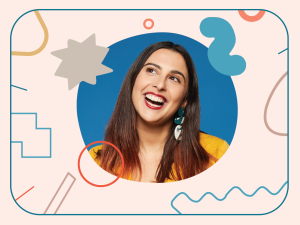
June 28, 2023
In the series finale of How’d You Get THAT Job?!, host Eleni Matheou unpacks what we’ve learned about how people thrive at work.

June 14, 2023
Nathan Friedman is the co-president and chief marketing officer of Understood.org. And he has dyslexia and ADHD. Learn how he got into the C-suite.
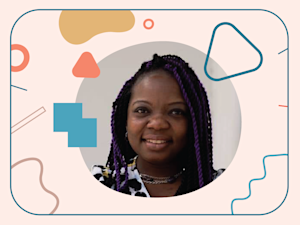
May 31, 2023
Dr. Loucresie Rupert is a child, adolescent, and adult psychiatrist with ADHD. She didn’t have an easy time getting her diagnosis as a Black woman.
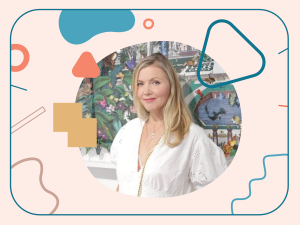
May 17, 2023
Kristjana Williams is a London-based Icelandic artist with dyslexia. She wasn’t diagnosed until she was 25, and now she has her own studio.

May 3, 2023
Aideé Chávez Frescas has ADHD, and is a senior social media manager at Understood. Her posts help end stigma and show others they’re not alone.
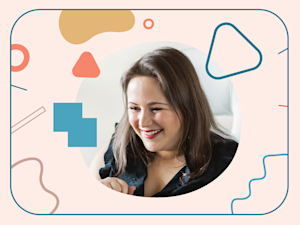
April 19, 2023
Alex Gilbert is a career coach with ADHD and dyslexia. After working in leadership development for years, she started her own coaching business.
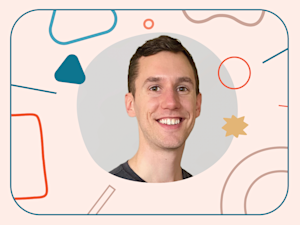
April 5, 2023
Dan Reis was diagnosed with ADHD during the pandemic. Now, he’s made it his mission to explore coping strategies to help him get his work done.
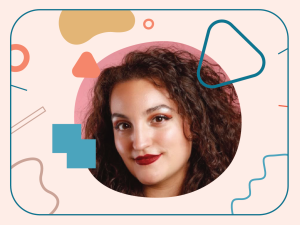
March 22, 2023
Rachel Basoco’s two jobs keep things interesting for her ADHD. She works full time at Fidelity, and part time at 11:11 Media, Paris Hilton’s company.
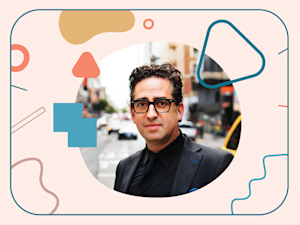
March 8, 2023
Gil Gershoni says that everything he does is dyslexic. He founded the branding firm Gershoni Creative and hosts the Dyslexic Design Thinking podcast.
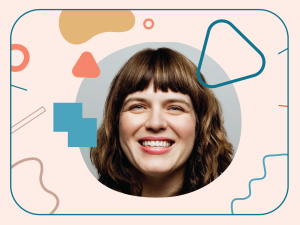
February 22, 2023
Claire Odom is a psychotherapist with ADHD. She’s also a disability inclusion consultant who has advice on navigating the workplace.
